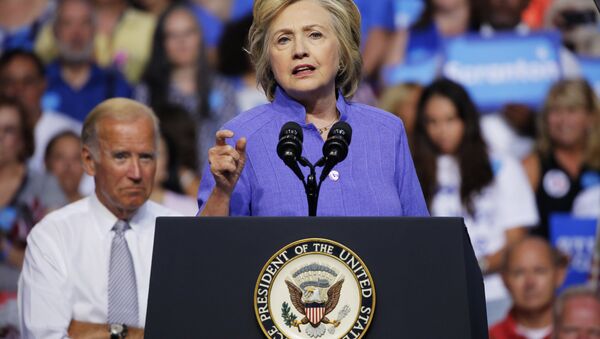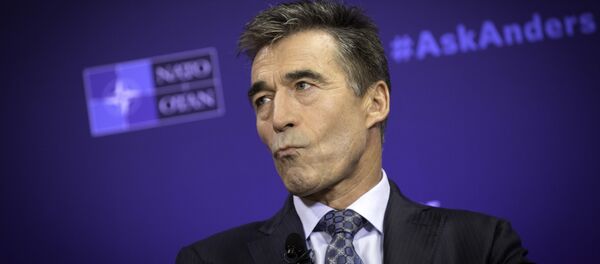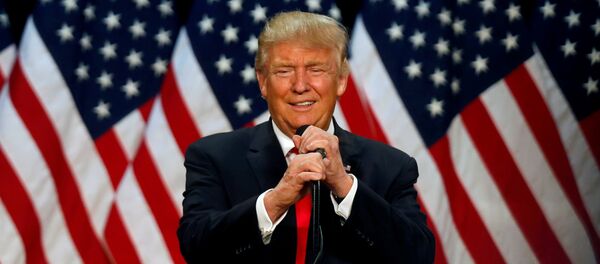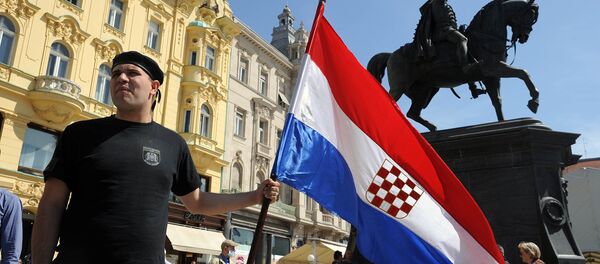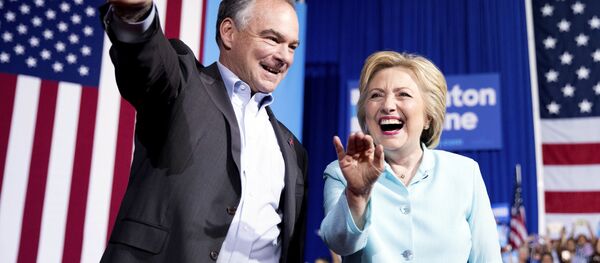The authors of the study analyzed statements made by Clinton and Trump during their elections campaigns.
Hillary Clinton represents a traditional foreign policy course, which means active American involvement in global affairs. In turn, Donald Trump offers an isolationist approach, which means focus on US domestic issues.
"The upcoming US elections are a crossroads for American security guarantees to Europe. Democratic nominee Hillary Clinton, a maximalist both in political background and campaign rhetoric, is likely to maintain the status quo of US NATO assistance and possibly increase allied presence along NATO’s eastern flank," the study read.
As for her Republican rival, ICDS experts wrote: "Donald Trump vacillates between two dangerous extremes: hair-trigger impulsivity and sycophantic flattery of Vladimir Putin."
As for NATO, the authors noted that for Clinton NATO is an alliance that cannot be broken. At the same time, Trump has said that NATO is an outdated alliance and focus should be placed on the fight with terrorism rather than building defenses at NATO’s eastern flank.
"The differences between the candidates may be clear, but the victor is not. In an uncertain race, the future of vital US support for the Baltic States hangs in the balance," the authors warned.
Clinton will only speak about the need to expand NATO during her campaign or to intimidate Russia, but in fact no real expansion can be expected, experts told RT.
"In 2008, US President George W. Bush tried to speed up Ukrainian and Georgian accession to NATO but France and Germany rejected the move because they wanted normal ties with Russia," said Sergei Samuylov, senior analyst and the Institute for US and Canadian Studies.
According to him, if elected Hillary Clinton is unlikely to restart the process. Since his election, Barack Obama has been accused of showing "weakness" towards Russia. Hillary Clinton has been criticizing Russia during her campaign in order to secure victory in the election.
Samuylov also assumed that if elected Trump will cut US NATO spending.
"In fact, new NATO members are financial dependents. Trump wants all NATO members to pay two percent of their GDP. This is why some European countries don’t like him," he added.
"If Trump is elected he will return to the 1823 Monroe Doctrine [not meddling in the affairs of other countries] and will focus on US domestic problems. Of course, he will take part in the processes started by Obama, but to a lesser extent. He will also carry out the financial examination of NATO in order to optimize the US budget and deal with the debt," Sudakov explained.
At the same time, Hillary Clinton will not decrease NATO spending, the expert said.
"If she is elected, the US will continue its aggressive policy towards Russia as well as support for small allied countries. The US will spend more money to expand the alliance," Sudakov concluded.
